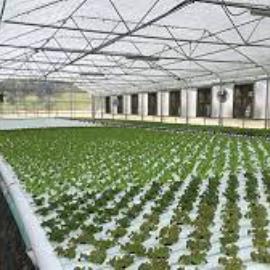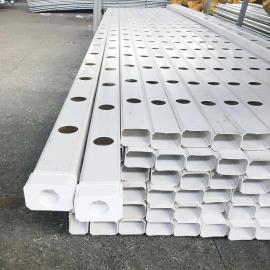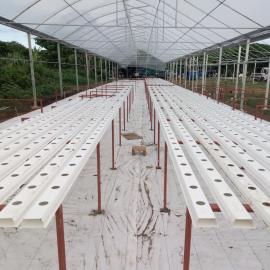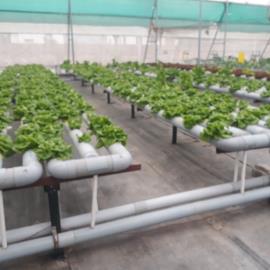From Farm to Table: How Commercial Hydroponic Systems Are Changing the Food Industry
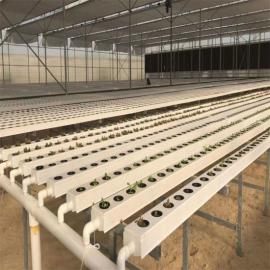
From Farm to Table: How Commercial Hydroponic Systems Are Changing the Food Industry
The food industry is rapidly changing, and one of the driving forces behind this change is the rise of commercial hydroponic systems. These innovative systems are allowing farmers to grow crops in a more efficient and sustainable manner, ultimately leading to fresher, healthier food for consumers. In this blog post, we`ll explore how commercial hydroponic systems are changing the food industry from farm to table.The Benefits of Commercial Hydroponic Systems
There are numerous benefits to using commercial hydroponic systems for growing crops. Let`s take a closer look at some of the key advantages.
One of the biggest advantages of hydroponic systems is the ability to grow crops year-round. Traditional farming methods are often limited by the seasons, with crops only able to be grown during certain times of the year. Hydroponic systems, on the other hand, can be used to grow crops year-round, regardless of the weather outside.
Another major advantage of hydroponic systems is their efficiency. Because these systems use a nutrient-rich solution instead of soil, they require less water and space to grow crops. In addition, the controlled growing environment allows for more precise control over the growing conditions, which can lead to higher yields and faster growth. 3. Fresher, Healthier FoodFinally, hydroponic systems can lead to fresher, healthier food for consumers. Because crops are grown in a controlled environment, there is less risk of contamination or disease. In addition, because they are grown closer to the point of consumption, they can be harvested at peak freshness, which can lead to better flavor and nutritional content.The Impact of Commercial Hydroponic Systems on the Food Industry
Now that we`ve explored the benefits of commercial hydroponic systems, let`s take a closer look at how they are changing the food industry.
Hydroponic systems are allowing farmers to grow crops closer to the point of consumption, which can lead to increased access to local, fresh produce. This is particularly important for urban areas, where access to fresh produce can be limited.
The rise of commercial hydroponic systems is also creating new business opportunities. As more farmers adopt these systems, there is a growing demand for hydroponic equipment, supplies, and expertise. This has led to the growth of a new industry around hydroponic farming.
As we mentioned earlier, commercial hydroponic systems are more sustainable than traditional farming methods. This increased sustainability is becoming increasingly important to consumers, who are looking for more environmentally friendly options when it comes to their food.
Finally, hydroponic systems can lead to improved food safety. Because crops are grown in a controlled environment, there is less risk of contamination or disease. This is particularly important given the recent outbreaks of foodborne illnesses that have been linked to traditional farming methods. By using hydroponic systems, farmers can minimize the risk of contamination and ensure that their crops are safe for consumption.Challenges and Limitations of Commercial Hydroponic Systems
While commercial hydroponic systems offer numerous benefits, there are also some challenges and limitations to consider. Let`s take a closer look at some of these challenges.
One of the biggest challenges associated with hydroponic farming is the high upfront costs. Setting up a commercial hydroponic system can be expensive, requiring significant investments in equipment, infrastructure, and technology.
Another challenge associated with hydroponic farming is the need for technical expertise. Hydroponic systems require precise control over growing conditions, which requires a deep understanding of plant biology, chemistry, and engineering. As a result, farmers may need to invest in specialized training or hire experts to operate and maintain their hydroponic systems.
Hydroponic systems are best suited for growing certain types of crops, such as leafy greens, herbs, and tomatoes. While new varieties of crops are being developed for hydroponic systems, there are still some crops that are difficult to grow in this environment. Conclusion Commercial hydroponic systems are transforming the food industry, offering numerous benefits to farmers, consumers, and the environment. By providing a more efficient, sustainable, and controlled growing environment, these systems are allowing farmers to grow crops year-round and closer to the point of consumption. They are also creating new business opportunities, increasing access to fresh produce, improving food safety, and promoting environmental sustainability. While there are some challenges and limitations associated with hydroponic farming, the overall impact on the food industry is likely to be significant in the years to come.
Latest News
-
20 Ridgeway Road, Edinburgh North 5113 South Australia
Contact Us
Address: 20 Ridgeway Road, Edinburgh North 5113 South Australia
Email: sales@pacerprofiles.com.au
